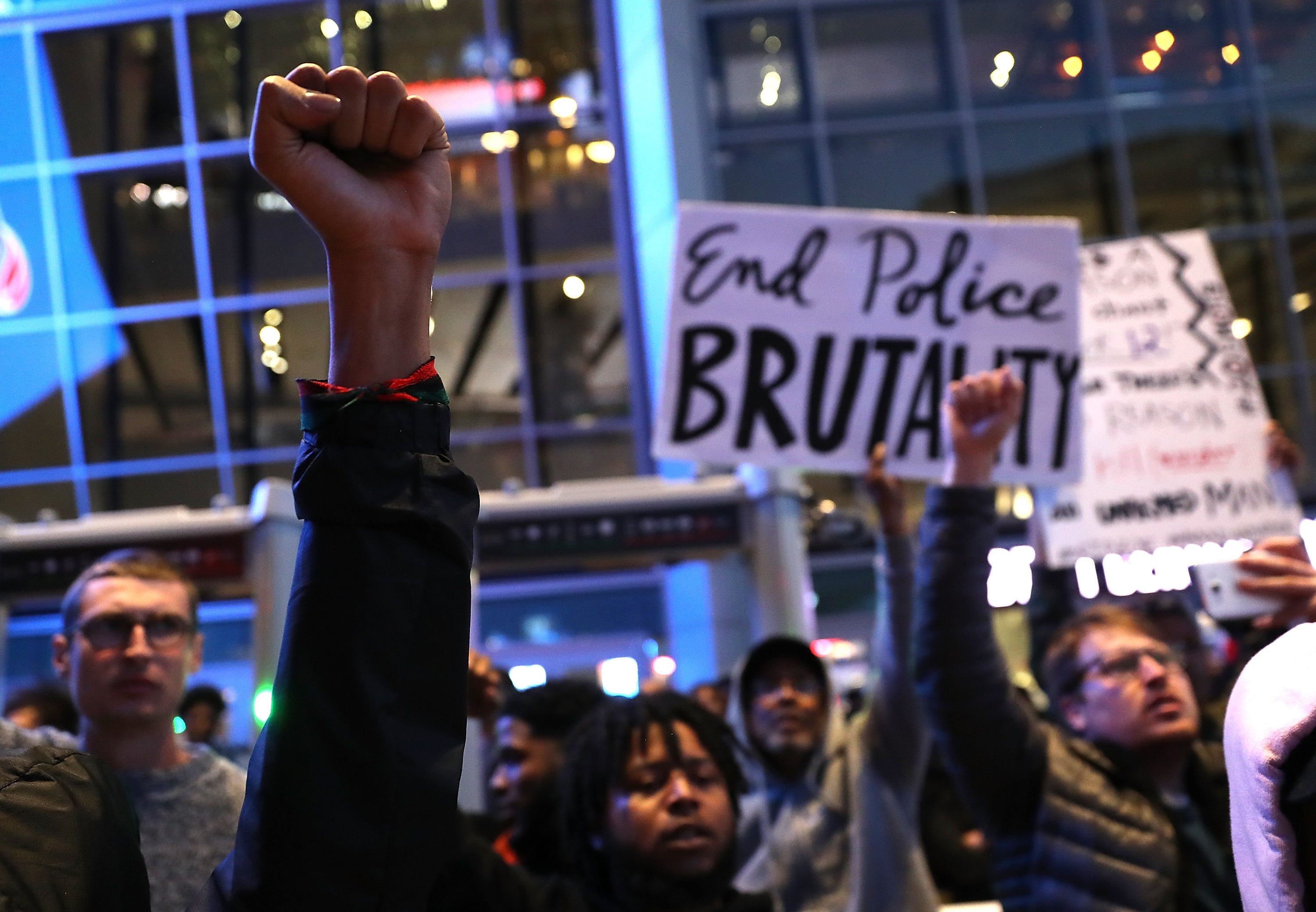
On Monday, the Supreme Court dealt an alarming blow to victims of police violence after ruling that a woman could not sue the police officer who shot her.
Amy Hughes was shot in her front yard after police in her Arizona town received a call about a woman hacking at a tree with a knife. According to NPR, when officers arrived, Hughes had a large kitchen knife by her side and stood “within striking distance of a woman who the officer did not know was Hughes’ roommate.” Though Hughes was calm and did not make any threatening movements toward her roommate or police, the officers on the scene drew their guns and gave her a command to drop the knife. When she didn’t, one of the three officers, Andrew Kisela, fired, striking the woman.
Hughes sued Kisela for excessive force, but her lawsuit was dismissed by the Supreme Court on Monday. While the case was thrown out without first being heard fully by the court, indicating the majority of justices agreed with the decision, Justice Sonia Sotomayor and Justice Ruth Bader Ginsburg registered their dissent.
Justice Sotomayor scolded her peers for overturning the lower court’s decision to allow Hughes’ lawsuit to proceed and said the Supreme Court was sending an “alarming signal” to police, who are regularly given leeway to make snap decisions that could result in life or death.
“Its decision is not just wrong on the law; it also sends an alarming signal to law enforcement officers and the public,” Justice Sotomayor wrote. “It tells officers that they can shoot first and think later, and it tells the public that palpably unreasonable conduct will go unpunished.”
